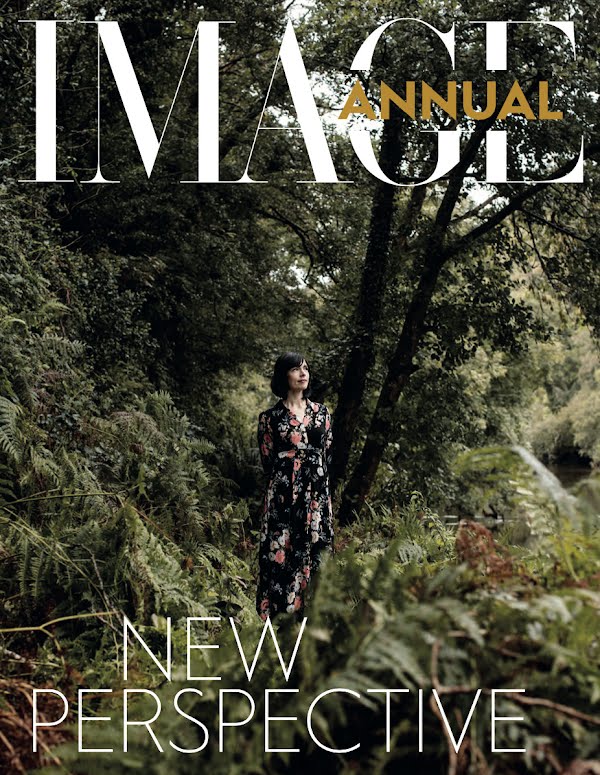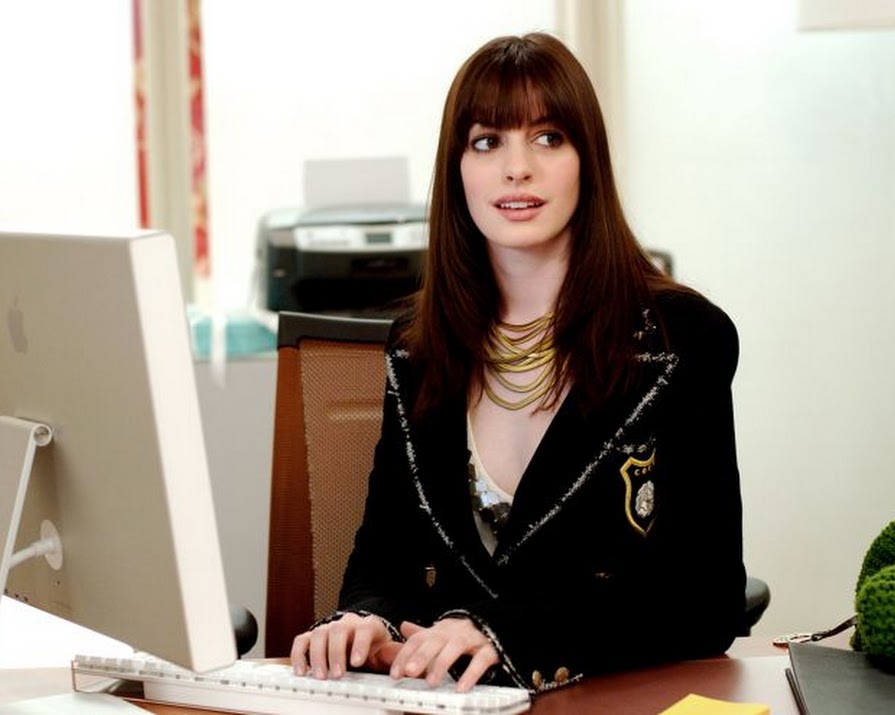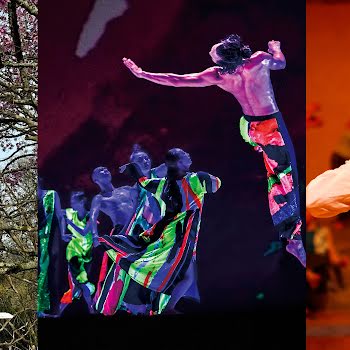
By IMAGE
31st Dec 2023
31st Dec 2023
Is the pursuit of happiness a Sisyphean task or a question of perspective? Self-confessed over-achiever Holly Hughes investigates, and wonders if ambition is in fact getting in the way.
There is a moment in Paul Auster’s 4 3 2 1 – a novel that explores the plurality of life and the many forking paths of “what ifs” our existence could take – when the inquisitive young protagonist ponders why his father is different from other dads. His father doesn’t play with him the way other fathers do, his father rebuffs weekend relaxing for working overtime, his father is consistently preoccupied with a business whose profits he stopped needing a long time ago, plagued by an invisible aspiration that precludes happiness as it drives him to achieve some intangible goal. In short, his father is suffering from an acute case of ambition.
The kind that borders on obsessive; the kind that is all-consuming, all-encompassing, blinding. This, the astute boy prescribes, is why his father is not, and can never be, happy. While the other dads, in undemanding careers that will plod placidly on until retirement, are unphased by the fever of self-improvement and therefore free and unfettered to relish the ball-throwing, barbecue-marinating joy of the present, his father is destined to spend his life breaking his back to attain the unattainable; a football player doomed to aim for ever-shifting goalposts he has no hope of scoring.
Worse than this, these goalposts – in his father’s case, a hardware franchise, a bigger house, a shinier car – only lead him further and further away from the people and potential of his present.
It was at this point that I put Auster down, shaken by the realisation that I was empathising with a white, middle-aged, affluent male from the 1960s (a trauma in itself). You see, in the blur of my hustling existence pre-coronavirus, I had become this blinkered and seemingly blighted father: a person perpetually dissatisfied, an eternal seeker who, by the time they reached a milestone, was already inured to its merit in the hurtle towards the next one. While objectively successful (the pain of writing that sentence without apology!), I was still unsatisfied, still searching, still striving for an unknown ideal.
After 879,040 days of lockdown and too many afternoons spent gazing into the abyss of uncertainty, wondering why and for whom and what I was striving, I found myself now at an impasse. Like many people who had been undergoing a quiet recalibration of values, desires, and needs during the pandemic, I was confronted with the innocent question of Auster’s protagonist: Can happiness and ambition co-exist? Or must the pursuit of one mean the abandonment of the other?
Superficially, popular culture, social media, and the thrill of awards seasons seem to suggest that happiness and ambition not only co-exist but are synonymous, mutually inclusive, fused together in a wide-eyed grin, clutched trophy, bold headline and a standing ovation. From Silicon Valley to the Oscars, Wimbledon to Lizzo, this narrative is played out on a daily basis with only one, unavoidable conclusion: ambition leads to happiness. It breeds, burgeons and fans the flames of contentment.
Can happiness and ambition co-exist? Or must the pursuit of one mean the abandonment of the other?
To paraphrase Martin Luther King and a whole rake of Instagram entrepreneurs, the story we see – typically when we are horizontally inclined and therefore at our least productive – is this: “I had a dream, I worked to make that dream come true, and now, on achieving said dream, I’m ecstatically and permanently happy – big love to my one million followers!”
This is what the algorithms tell me, yet this is not my experience of ambition. You see, in that traditional narrative, we make one fatal error – we presume that ambition is finite. This view is reductive in the extreme, propagating the idea that the obstacle overcome as the final movie credits roll is the only obstacle. That one personal best reached or one promotion granted is enough to satisfy ambition and, on reaching that summit of personal potential, we simply float down to the valley of eternal, self-satisfied happiness.
But ambition is greedy, insatiable, incorrigible, infectious. It receives an inch and demands a mile – alongside sleep deprivation and a long-lost personal life. There is no “off ” button, there is no air-punching freeze frame. There is only the next goal to work towards, the next hurdle to overcome, the next person to beat.
And while this incessant drive for more might be beneficial for our careers or quality of life – a study of gifted children showed that those with more ambition were better educated, made more money, and enjoyed more prestigious careers – I don’t think it is making us happier. Indeed, in that same research it was shown these material increases did not correlate to wellbeing. In short: we got smarter, richer, further but, crucially, we didn’t get happier.
Ambition is greedy, insatiable, incorrigible, infectious. It receives an inch and demands a mile – alongside sleep deprivation and a long-lost personal life
This tension seems, to me, a far more realistic reading of the clash between ambition and happiness so many of us were grappling with on a heightened level in lockdown. Without the bustling distractions of the chase and hustle of professional life, the truth is cold and clear in my childhood bedroom-turned-office: The further I go in my career, the less satisfied I am with what I have achieved.
As a twentysomething, I am of the generation who was told the world was ours to demand fulfilment, adventure and satisfaction from – that we were free to do and be anything we wanted. How I – and I believe many others like me – have internalised this limitless potential is: “If you can, then you should do everything.”
Just look at our social media platforms and the brutal butchering of the work-to-live 9-5. Not unusually, I work two jobs. Landing just one of these opportunities – both of which were childhood aspirations – should have been enough to ordain me as a permanent resident of cloud nine. Instead, I am plagued with whispers of “more”, as every personal or professional breakthrough is mired by the shifting horizon line of what is yet to be done; every triumph overlooked in the looking over my shoulder at the plethora of self-made success stories who far exceed any minor achievement of mine.
I know that ambition is of fundamental importance to the continued survival of our world, not to mention our own human evolution. Without the drive of perpetual dissatisfaction, I would be without everything I value – from the right to vote to the career I am privileged to call mine. However, I am petrified by the toxicity of its voraciousness. I wonder when this constant excavation of myself, this interminable quest for bigger, bolder hurdles is going to end. When will enough be enough?
Life is a marathon, not a sprint, the old adage goes. Yet, while the distance might be marathonic, I had been careering through it at a pace more suited to a 100-metre sprint. Before the enforced jog a Covid-stricken world herded me into, my life was characterised by my running mantra: “Just make it to the next lamppost”. Reader, we all know the “next lamppost” doesn’t exist.
Twenty poles later, panting, stumbling, ignorant to just how far I’ve surpassed that original marker, I was still going, would keep going, until I, quite literally, ran out of road. For what? For who? I am not sure. All I know is I couldn’t stop.
I still can’t but, with the harrowing perspective of this pandemic to slow me, I am trying. Trying to avoid the life of that doomed, absent father so focused on the promise of a “someday”, he squandered the joy of “today”. Because, well, if there’s one thing we’ve learned recently, it’s that today is all we have.
This article originally appeared in the IMAGE 2020 Annual.
























